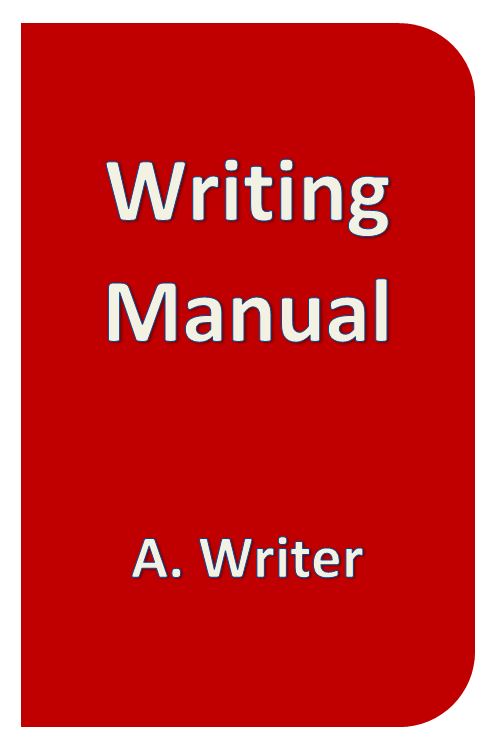Authors love to write, write, and write some more. They enjoy sitting down at the computer, typing creatively.
Sitting down and reading grammar books usually isn’t one of their passions. Neither is reading their work carefully to edit it.
Grammar and editing are very important tasks. Authors do them as they must, but it usually isn’t something they love to do.
This makes it all the more important to strive to develop good writing habits. The author who succeeds at this has fewer issues to find and correct when editing.
Just reading about grammar may not be effective; especially, when the reader isn’t passionate about learning it.
Every time the author sits down and writes, the author is reinforcing any bad writing habits that the author may have. And authors tend to write quite frequently.
Practice doesn’t necessarily make perfect; practice makes permanent.
In order to reduce bad writing habits and develop good ones, writers must practice good writing habits.
It’s the same reason that golfers who naturally slice will continue to slice forever if they don’t learn how to avoid it. Every time the golfer goes to the driving range and practices the slice, the bad swing habits become more ingrained. If the golfer instead receives effective instruction and practices hitting the ball straight, then the golfer is developing good habits to replace the bad habits.
So writers just need a little instruction and a ‘writing range’ on which to practice.
Every day, learn one new thing about writing (or one thing long forgotten) from a reliable resource. It could be a rule of grammar or punctuation (like when quotes should come before or after other punctuation marks), the distinction between similar words (like ‘affect’ and ‘effect’), or writing advice (like cutting down on useless words). There are many helpful writing resources, from bloggers to textbooks, so there is no excuse for not finding one point of advice every day.
But that’s not enough. Otherwise, the idea may quickly be forgotten.
Now sit down at the computer and type several sentences practicing the correct technique. Practicing what is correct will help turn a bad writing habit into a good writing habit.
Don’t just sit down like a mindless drone cranking out sentences.
Get into it. Write creatively, as if writing a short story or a poem. This will help generate the interest needed to better retain the lesson.
Another way to develop better writing habits is to read books that are well-written, especially well-written classics. This helps the mind become better accustomed to good writing.
Chris McMullen, self-published author of A Detailed Guide to Self-Publishing with Amazon and Other Online Booksellers


Great reminder that “practice makes permanent.” I also like to read classics, like you mentioned, to get in the rhythm of certain genres of writing.
Getting into the ‘rhythm’ of writing… I like that thought. 🙂
Wonderful post. However I must point out that if I were to cut out all my useless words, British slang and other errors my posts would be entirely empty. 😉
Ionia, when have you ever uttered a useless word? 🙂
Speechless
I totally agree. Reading is part of a writer’s arsenal. I love the classics. I also enjoy asking for book recommendations from other writers.
Yes, it’s always interesting, and sometimes surprising, to learn what books other writers enjoy reading. 🙂
Good advice or is it advise? LOL.
Well, if you want to make it multiple choice (select all that apply):
(A) advice (B) advise (C) advisory (D) council (E) counsel
🙂
I got very lucky the first day of Freshman Composition. The teacher blew into the room and without saying a word, wrote on the board: “It’s = it is” Then turned and glared at us teenagers and said, “Don’t EVER get this wrong.” It is burned into my brain.
Some of those practices can be quite effective. I had a teacher who said that if he found 3 mistakes in an essay, he would give it an F and stop reading it. I never found out if he was serious about it, but I sure did my best to avoid mistakes. 🙂
This is wonderful advice. I grew up in the arts, so I was raised to believe practice makes perfect – permanence. I consider myself an inexperienced writer, meaning I am new to writing poetry or any genre of writing, of which I haven’t dabbled in – yet. I have been thinking of taking a course – to enforce effective habits.
This is a wonderful blog – just discovered thanks to Ionia. I must confess that I was intrigued by your ‘about page’. The physics ‘thing’. Let me just say I am very aware of fourth dimension and Higgs and all kinds of other interesting scientific ‘components’ which pop up from time to time:)
Kimberly:)
A few of my top physics students were arts majors. There is definitely some physics in art and some art in physics. And there is some visualization, three-dimensionally (or maybe higher), that is common to both.
Thanks for stopping by and sharing your comments. 🙂